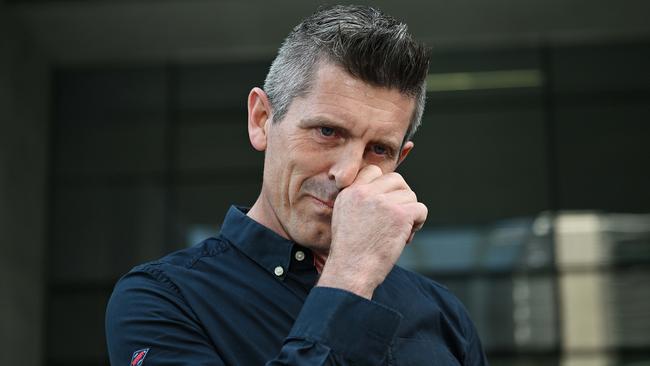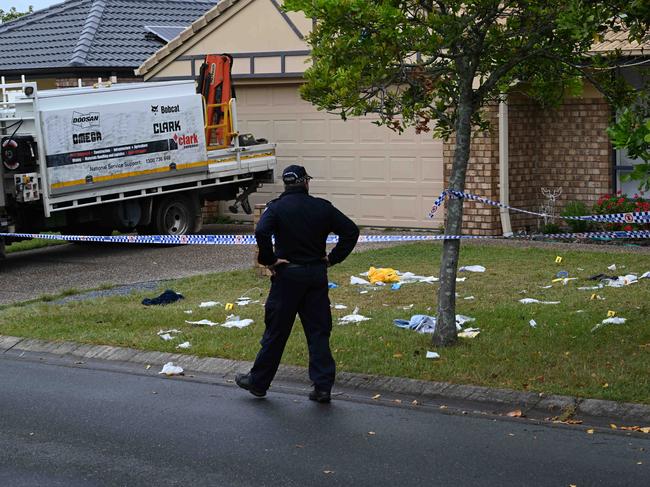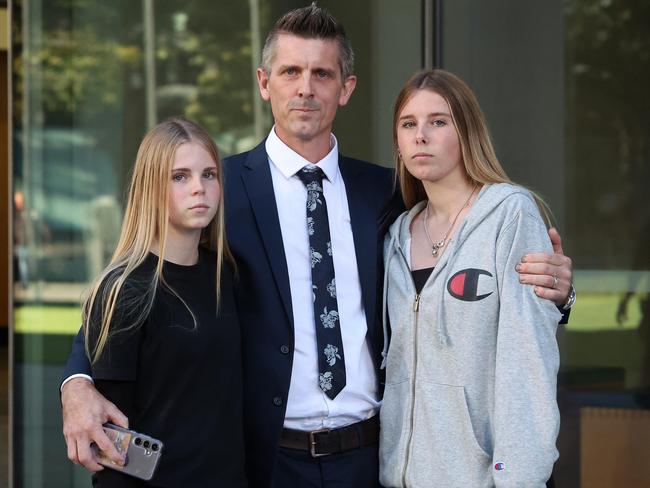Opinion: Justice not seen to have been done in Emma’s slaying
The acquittal of Emma Lovell’s second murder accused raises the issue of whether a Queensland law needs review, writes Terry Goldsworthy.

Opinion
Don't miss out on the headlines from Opinion. Followed categories will be added to My News.
Last week saw a second teenager charged over the home invasion murder of South East Queensland woman Emma Lovell acquitted by a judge.
Ms Lovell was fatally stabbed on her front lawn after confronting two 17-year-old boys who had broken into her house on Boxing Day 2022.
The case of Lovell was one of a number of high-profile incidents that had given rise to white-hot anger in the community over the former Labor government’s ineptitude in dealing with youth crime.
That government was summarily kicked out of office in last month’s state election, crime playing no small role in its removal.
The youth referred to as BZW, in the judgment, underwent a judge-only trial for murder in relation to the matter of Lovell.
His co-accused, known in the judgment as H, had pleaded guilty to murder early this year and received a 14-year sentence.
The matter of BZW was heard by Justice Michael Copley after a successful application was made for the matter to proceed by way of a judge only trial.
No jury made up of peers from the community would decide the guilt of this youth offender. This decision was primarily based on the fact that there had been significant pre-trial publicity that may affect jury deliberations.
In simple terms, Justice Copely found H had murdered Ms Lovell when he stabbed her, however he was not satisfied that BZW was a party to this act under Section 8 of the Criminal Code.

The judge stated in relation to the offenders entering the Lovells’ house: “I am not satisfied beyond reasonable doubt that there was an intention common to both to do so while armed with a knife.”
This limited the common purpose to an offence of entering the house unarmed in order to steal.
As a result, the judge found: “I am not satisfied that the murder committed by H was committed in the furtherance of or the carrying out of their agreed, common purpose of entering unarmed in order to steal.”
This finding was based on examination of the evidence, which consisted primarily of surveillance footage of the two offenders entering the house.
The judge could not be convinced that BZW had seen the knife produced by H at the front door of the Lovells’ house as they entered.
It was a crucial point that contributed to the acquittal of BZW.
To many in the community this outcome would appear unsatisfactory despite it being the current state of the law.
It raises the issue of whether the new LNP government needs to review the law around common intention to prosecute an unlawful purpose.
Similar review was carried out in relation to deaths cause by coward punches in 2014 when intention and foreseeability in relation to these type offences were removed as grounds for defence.

This was in response to court outcomes deemed as unsatisfactory and not in line with community expectations.
A new offence of unlawful striking causing death was introduced.
Despite only being given 14 years, H is appealing his sentence.
For the offence of murder, the current minimum period of time required to be served for adults is 20 years, before being eligible for parole.
Under the new proposed LNP “adult crime, adult time” laws he would have been sentenced to life imprisonment.
Widower Lee Lovell has said he may not bother to attend the sentencing of BZW for the burglary and assault matters.
Data from the Queensland Sentencing Council shows that from 2018-22 for aggravated burglary matters, only 14 per cent of youth offenders received a custodial sentence.
The average length of such being 7.8 months, this despite the maximum sentence being life imprisonment.
Given that BZW has been in custody on remand for two years, there may be good reason for Lovell to not attend.
The words of former Lord Chief Justice of England, Lord Hewart, have relevance to this matter.
“It is not merely of some importance but is of fundamental importance that justice should not only be done, but should manifestly and undoubtedly be seen to be done,” he said.
Very few in the community would see justice being done in this matter.
Dr Terry Goldsworthy is associate professor of criminal justice and criminology at Bond University
More Coverage





